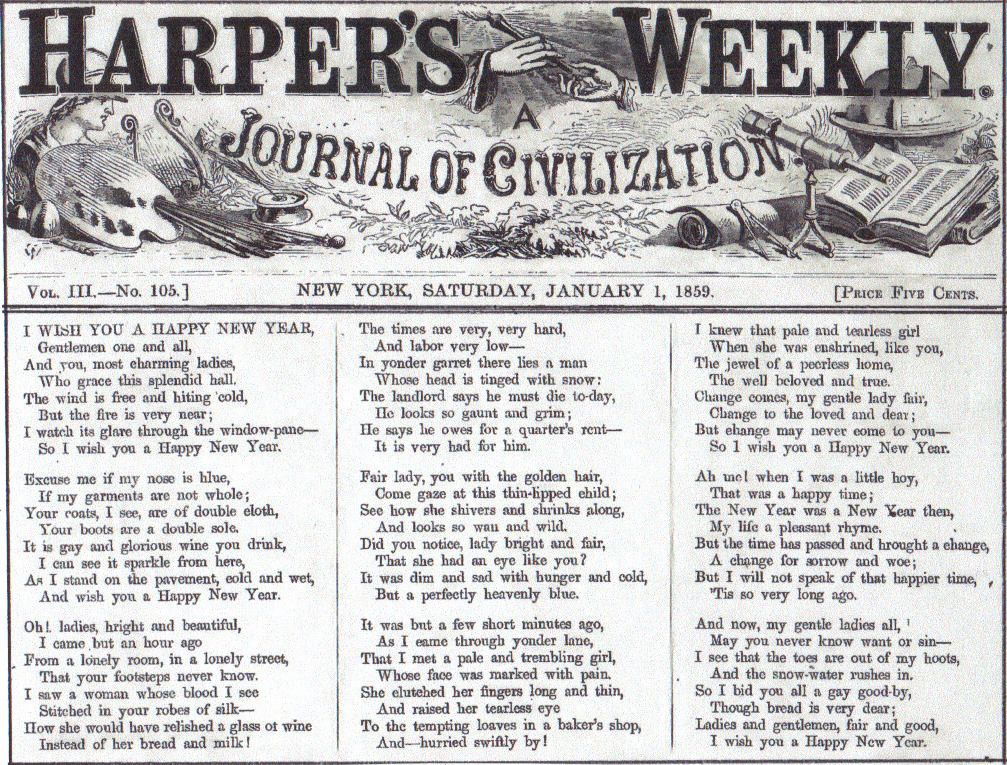
Posted on 01/01/2019 6:40:45 AM PST by Homer_J_Simpson

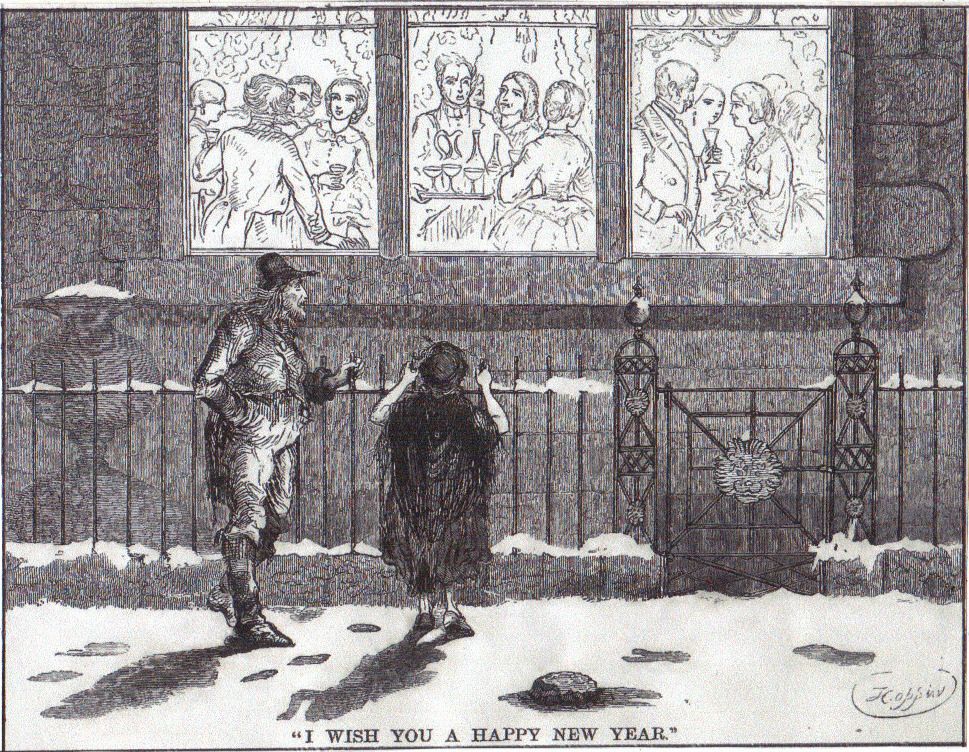
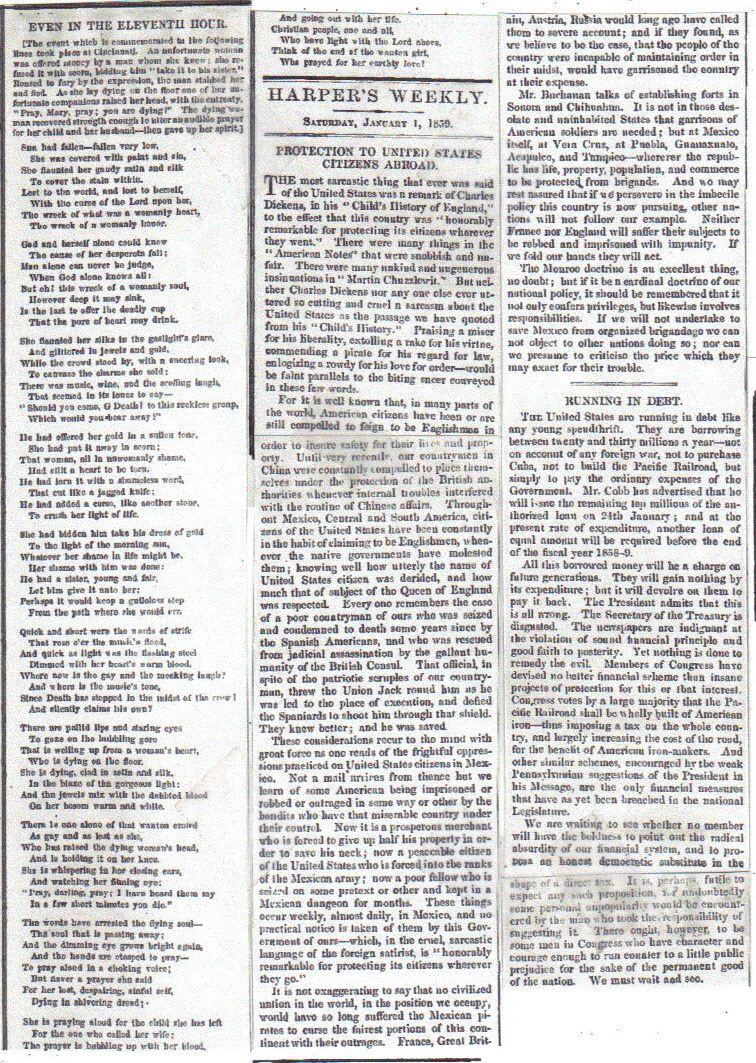
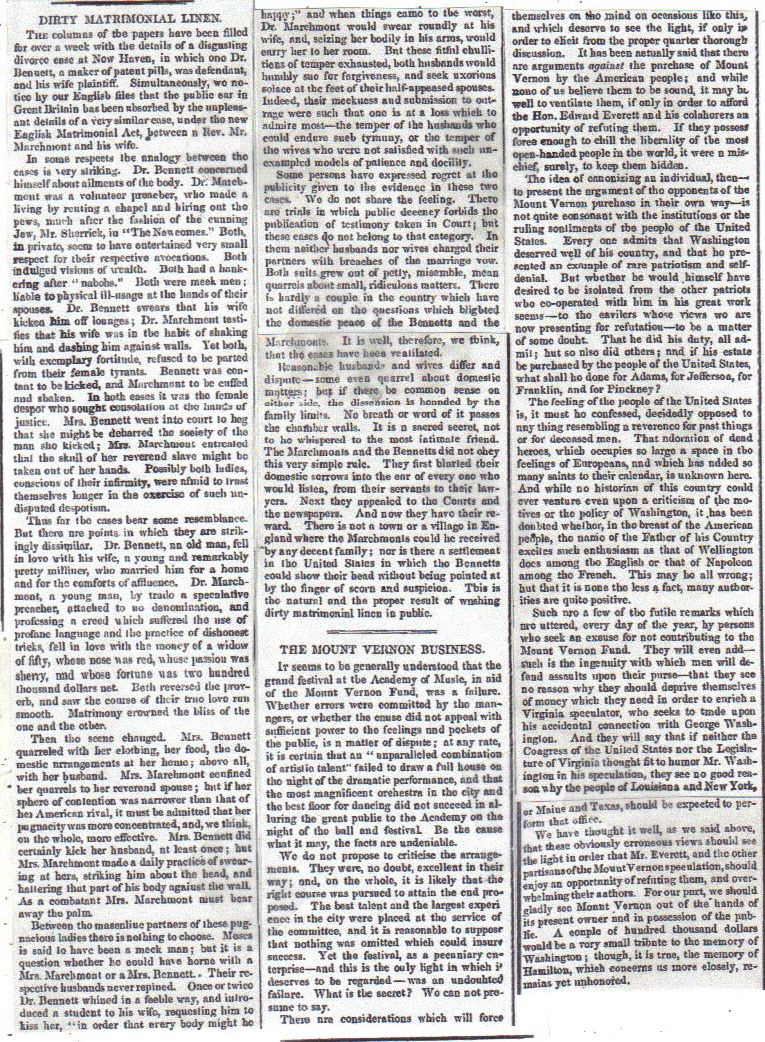
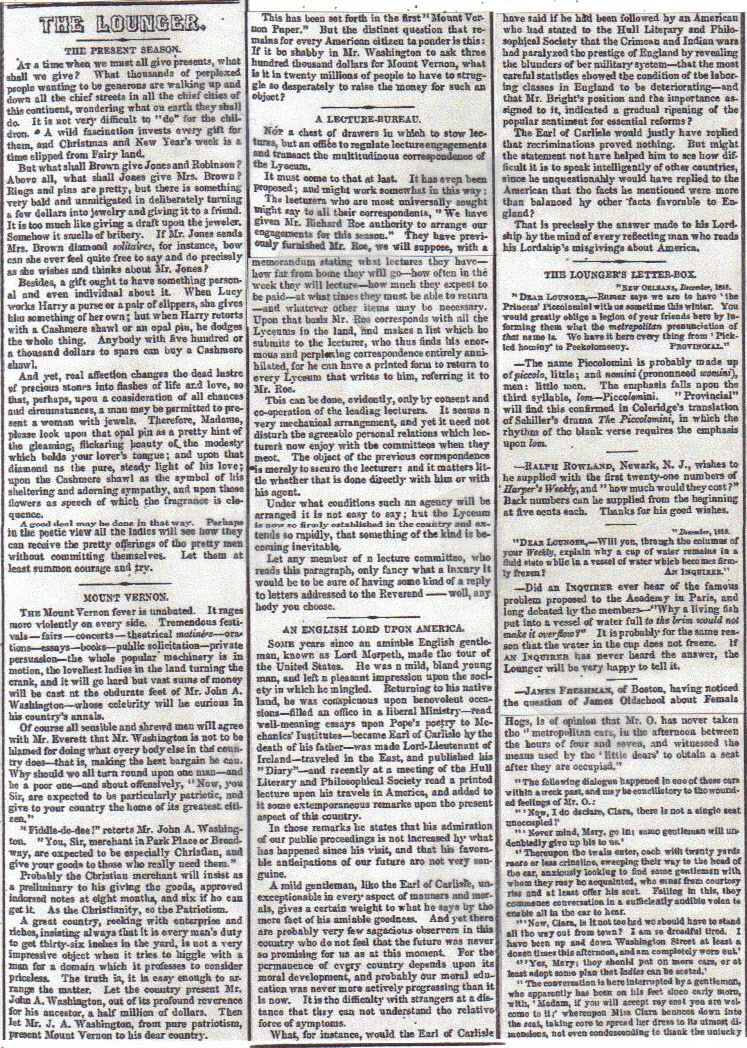
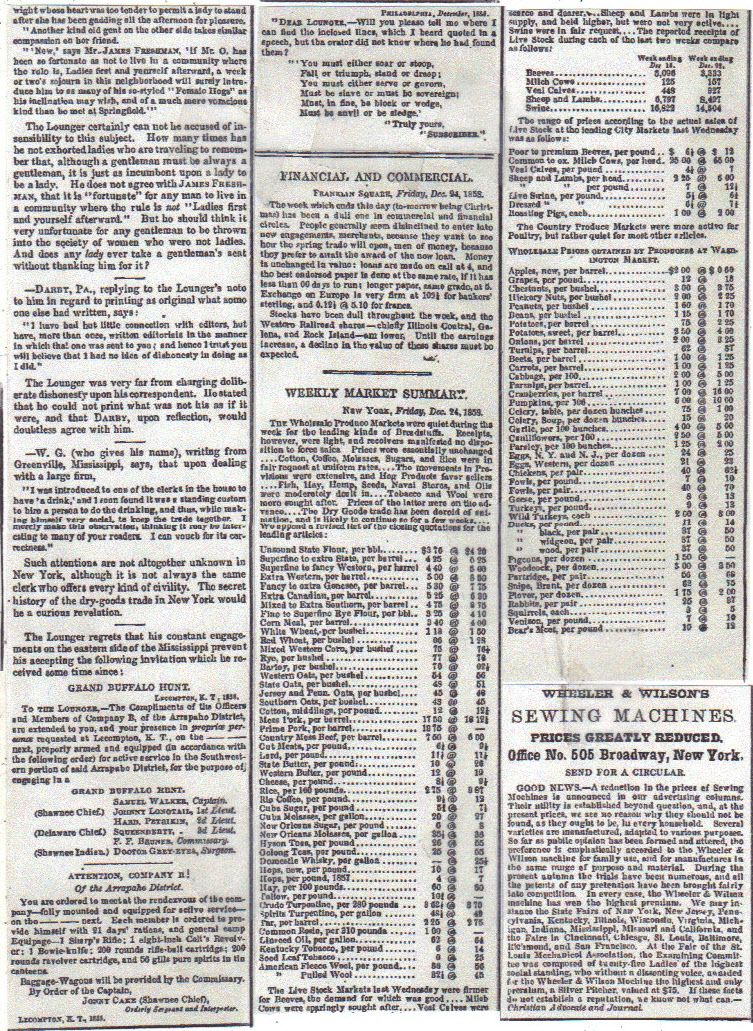
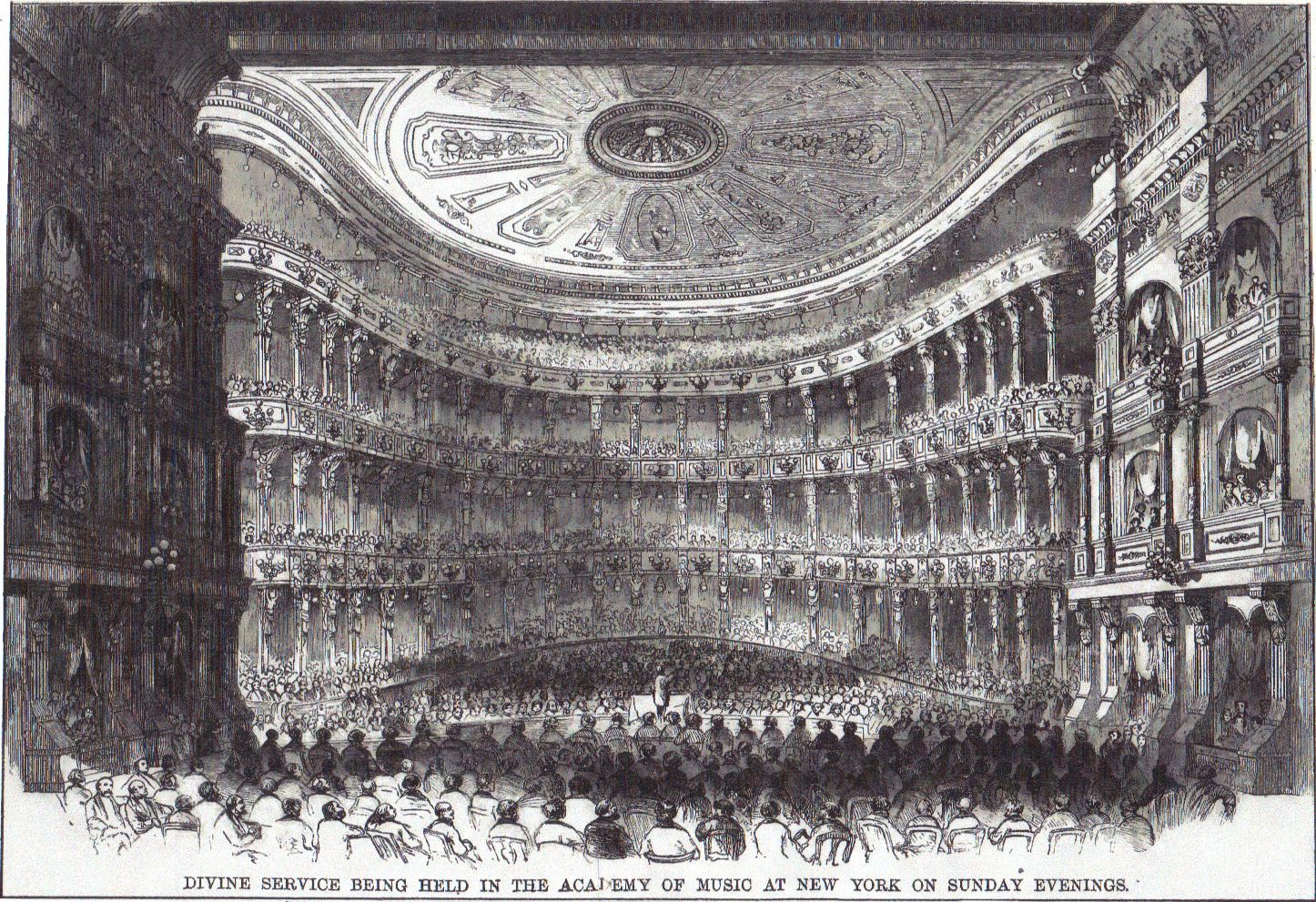
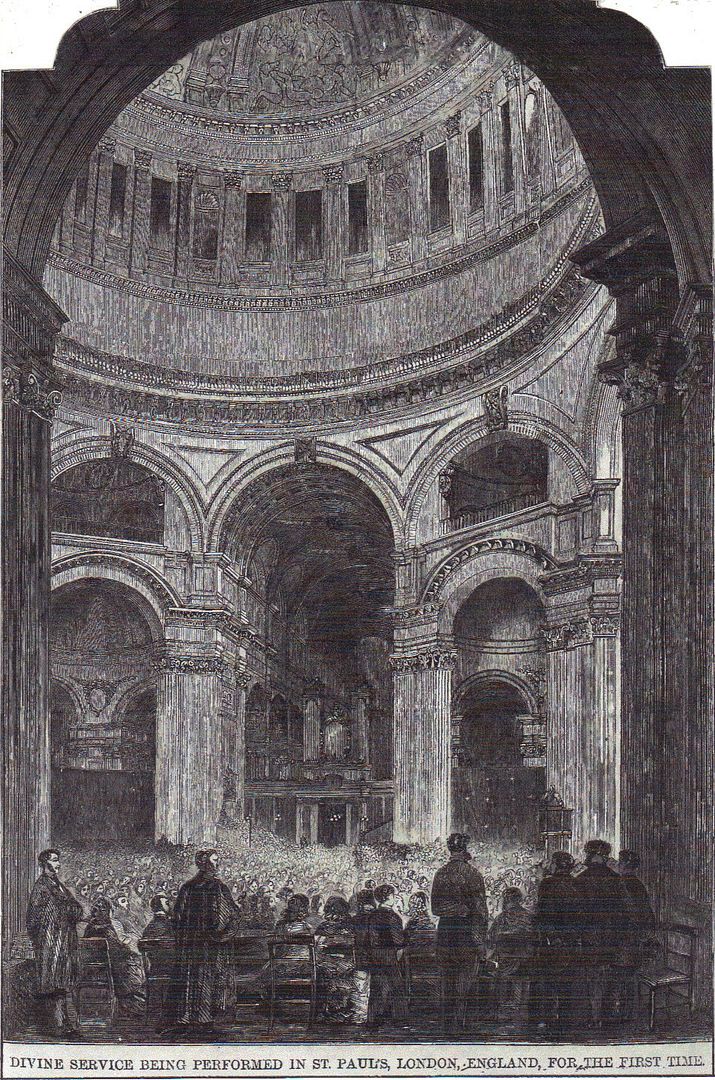
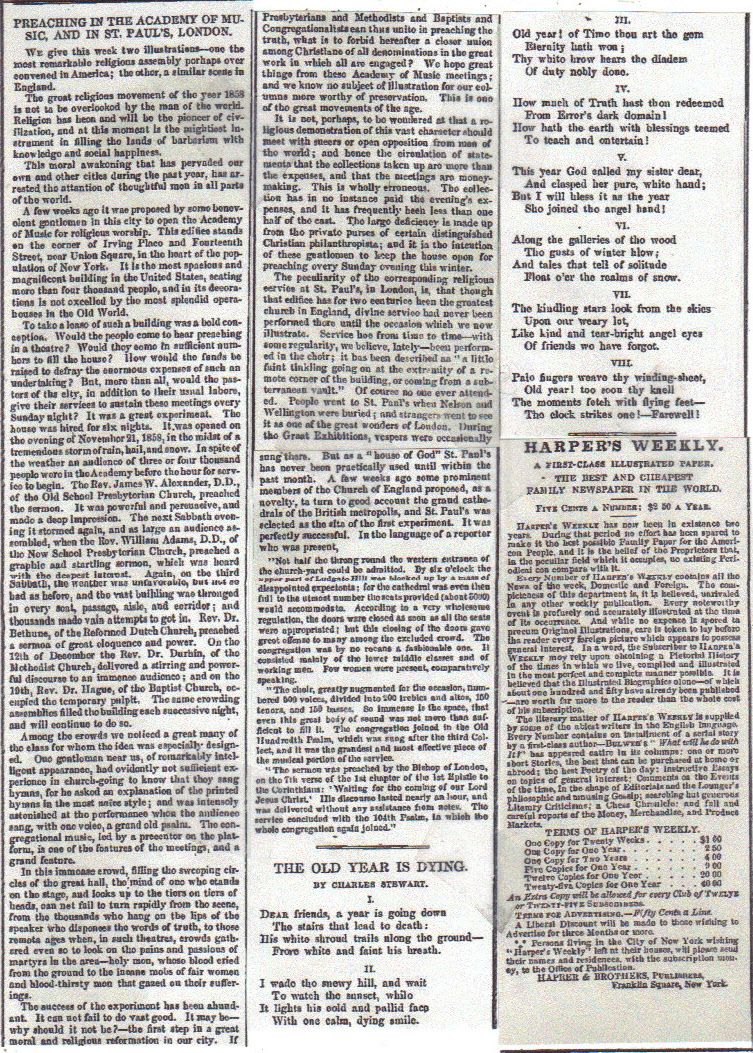
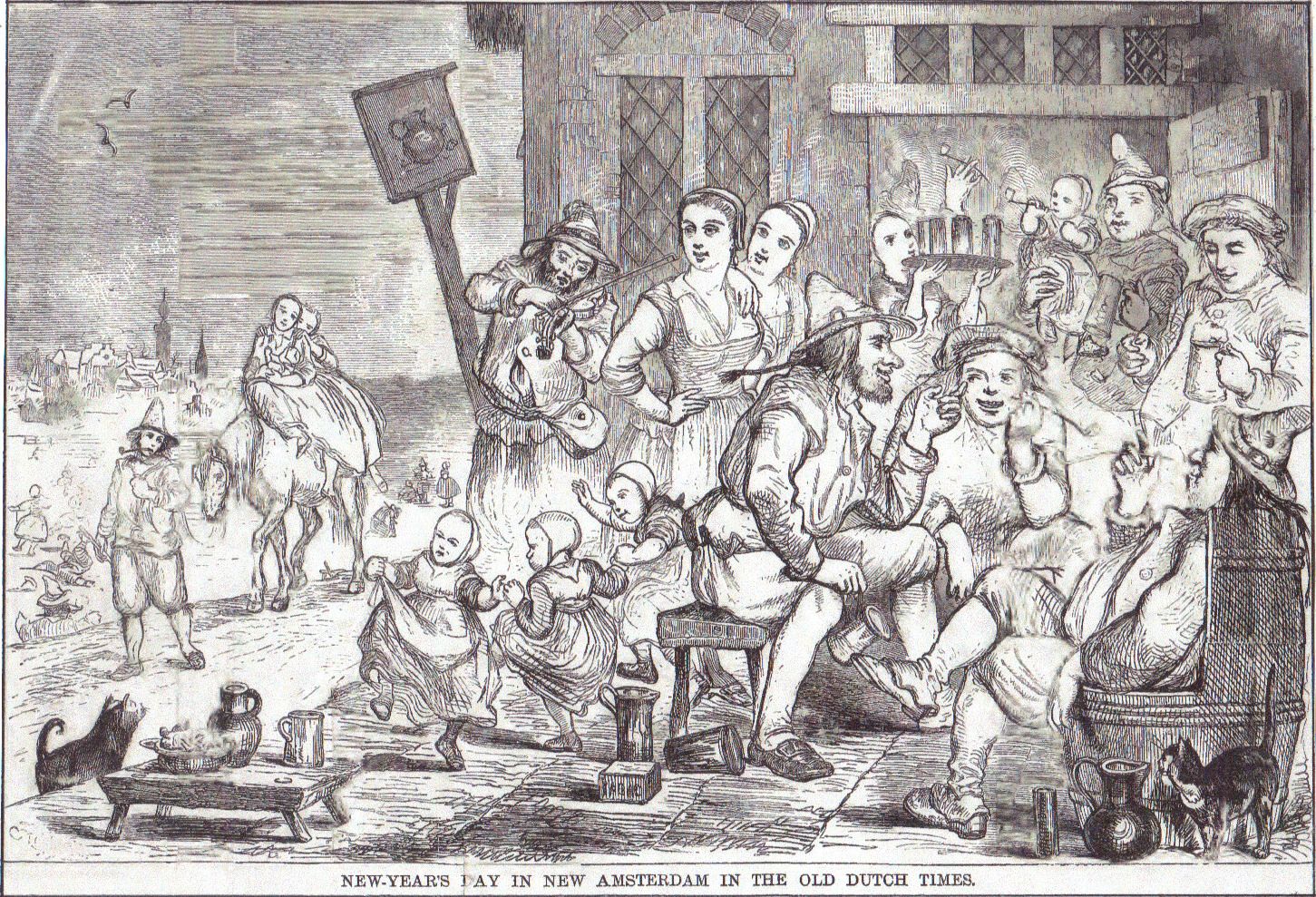
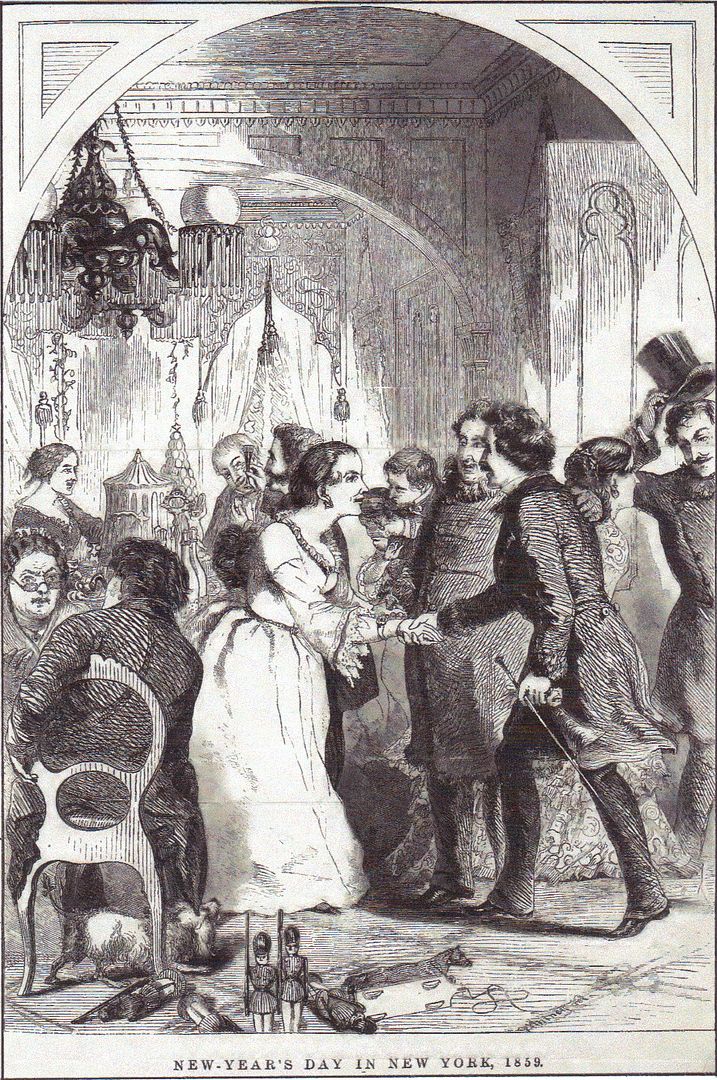
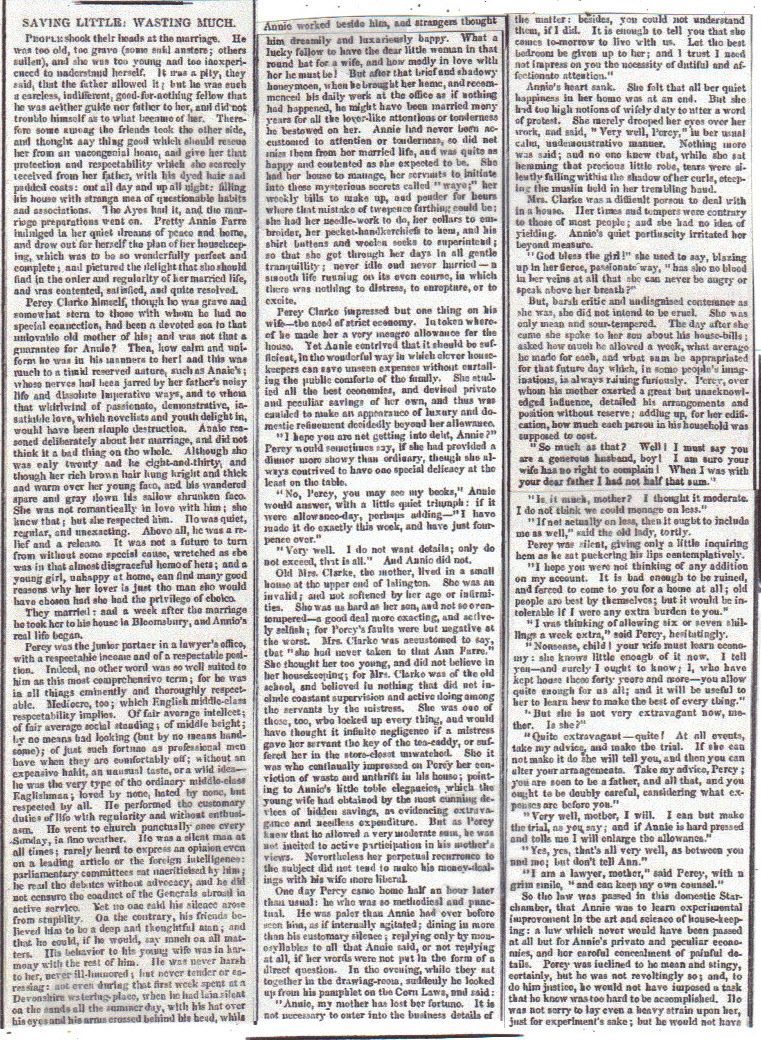
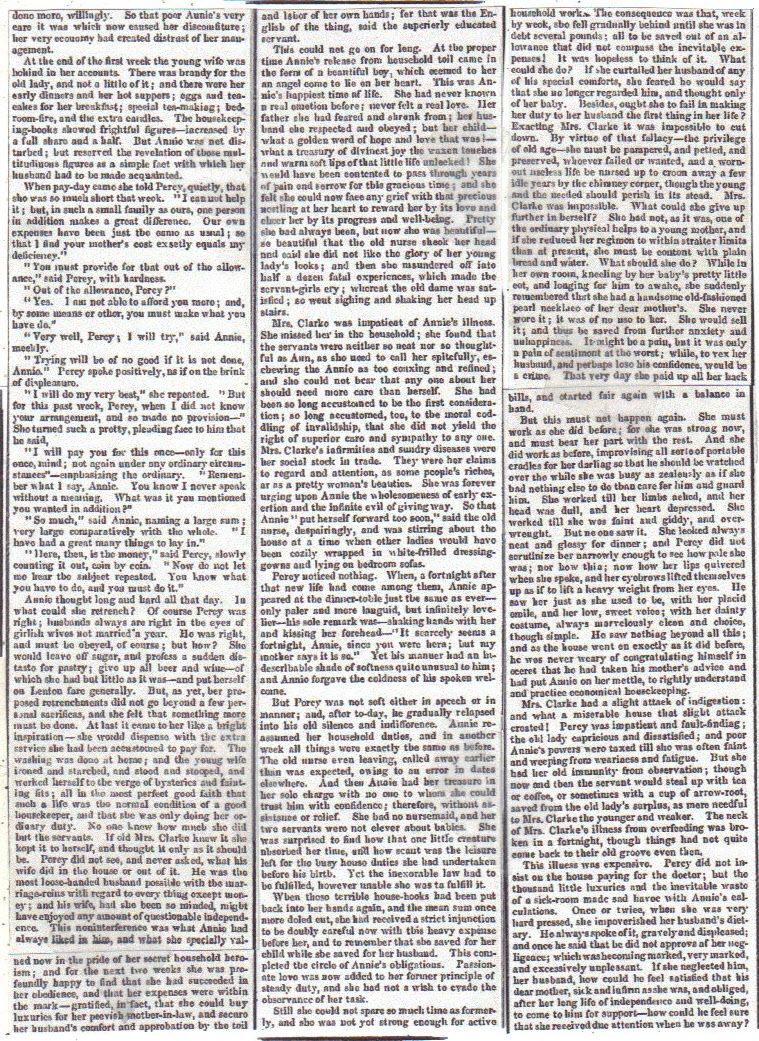
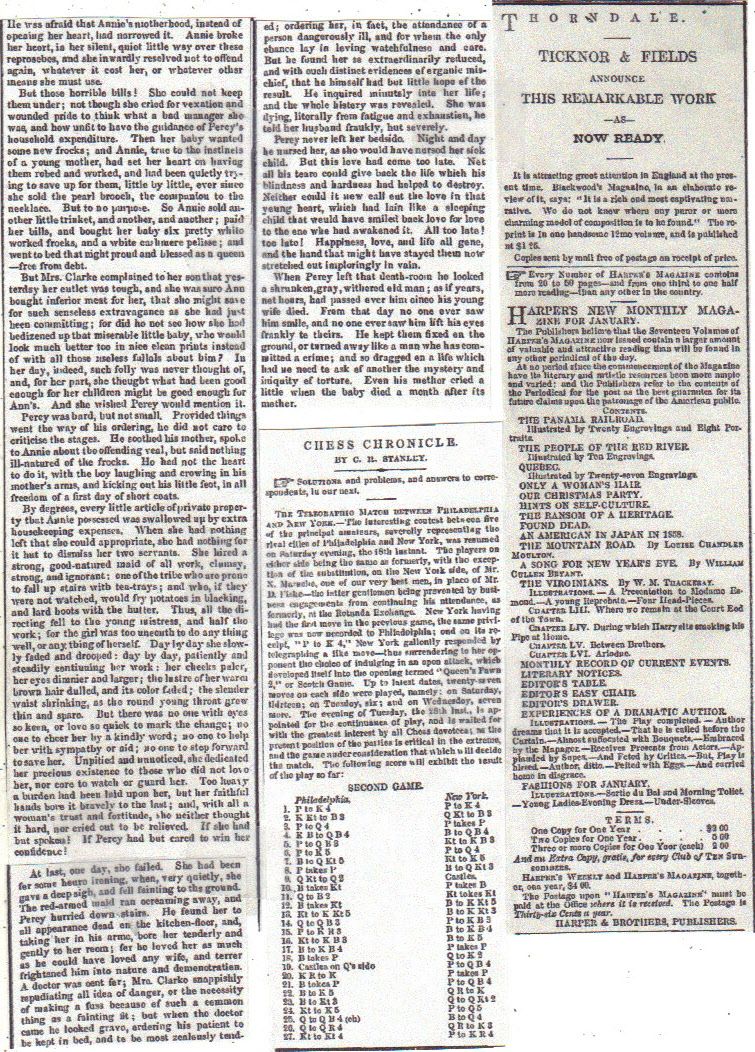
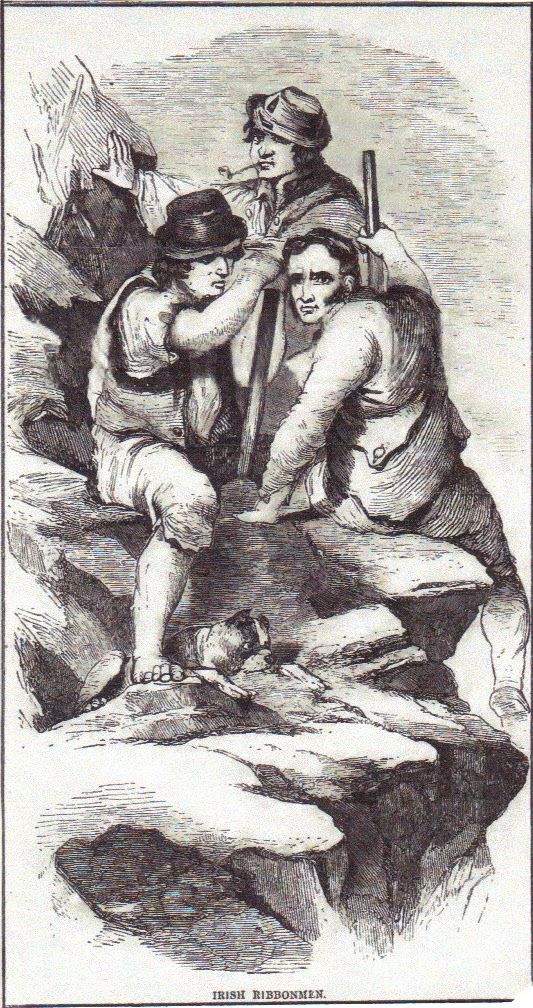
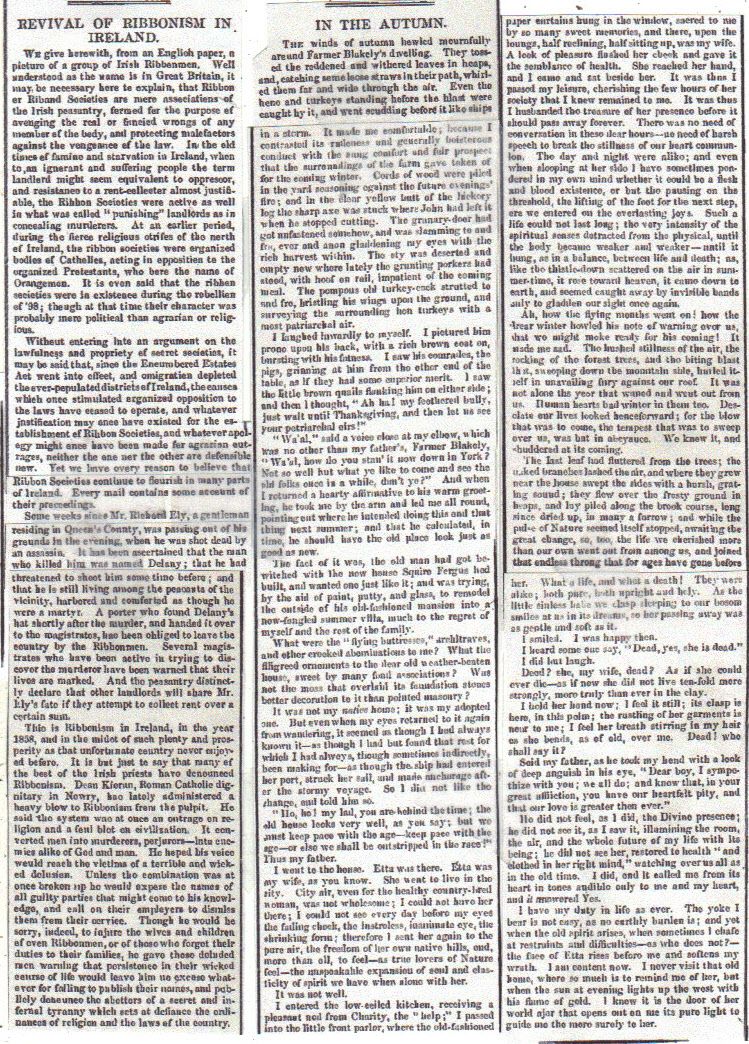
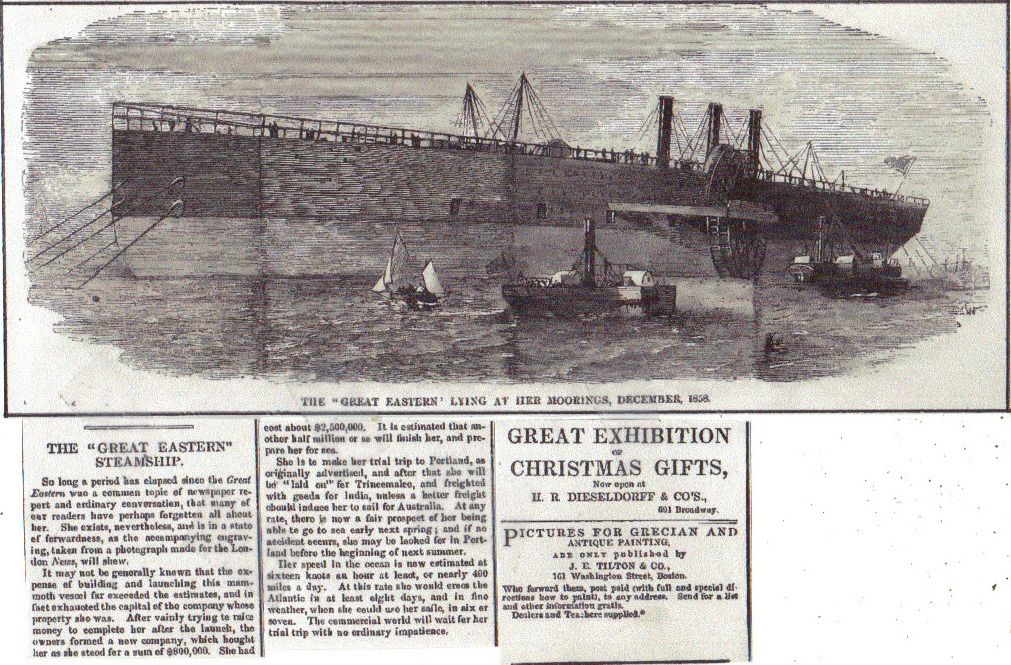
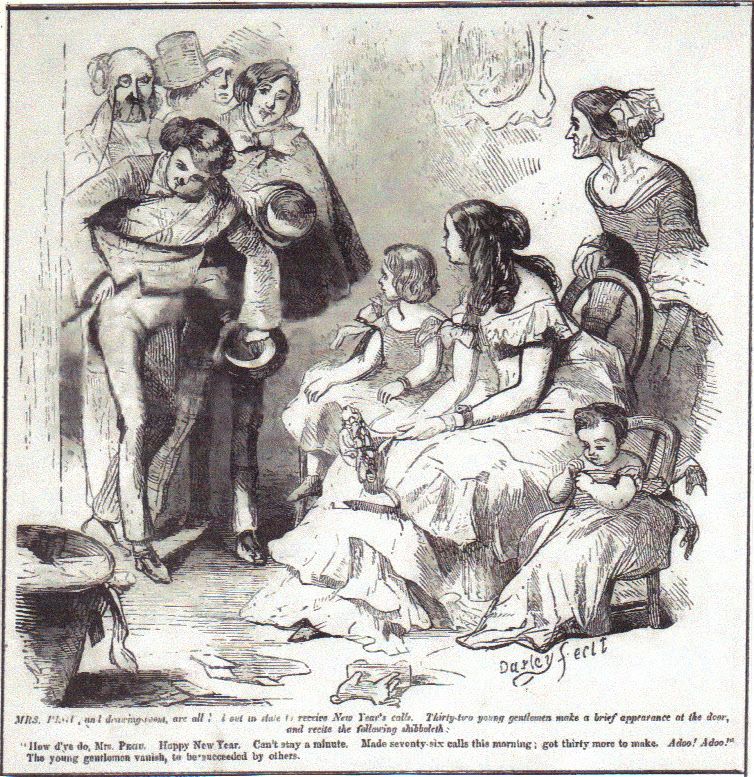
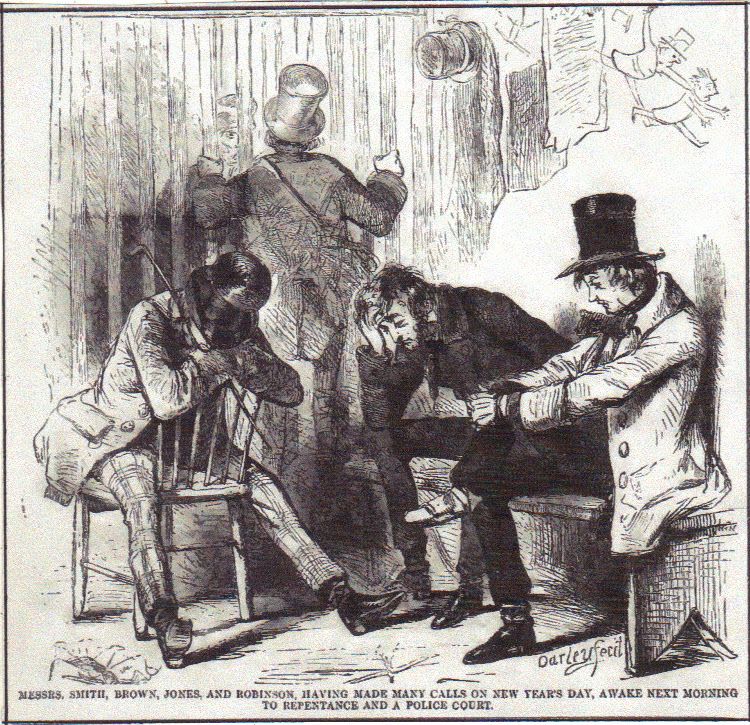
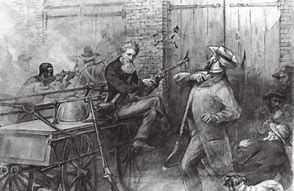
Free Republic University, Department of History presents U.S. History, 1855-1860: Seminar and Discussion Forum
Bleeding Kansas, Dred Scott, Lincoln-Douglas, Harper’s Ferry, the election of 1860, secession – all the events leading up to the Civil War, as seen through news reports of the time and later historical accounts
First session: November 21, 2015. Last date to add: Sometime in the future.
Reading: Self-assigned. Recommendations made and welcomed.
Posting history, in reverse order
To add this class to or drop it from your schedule notify Admissions and Records (Attn: Homer_J_Simpson) by reply or freepmail.
TRADING POST, KANSAS, January, 1859.
GENTLEMEN, — You will greatly oblige a humble friend by allowing the use of your columns while I briefly state two parallels, in my poor way.
Not one year ago eleven quiet citizens of this neighborhood, — William Robertson, William Colpetzer, Amos Hall, Austin Hall, John Campbell, Asa Snyder, Thomas Stilwell, William Hairgrove, Asa Hairgrove, Patrick Ross, and B. L. Reed, — were gathered up from their work and their homes by an armed force under one Hamilton, and without trial or opportunity to speak in their own defence were formed into line, and all but one shot, — five killed and five wounded. One fell unharmed, pretending to be dead. All were left for dead. The only crime charged against them was that of being Free-State men. Now, I inquire what action has ever, since the occurrence in May last, been taken by either the President of the United States, the Governor of Missouri, the Governor of Kansas, or any of their tools, or by any proslavery or Administration man, to ferret out and punish the perpetrators of this crime?
Now for the other parallel.1 On Sunday, December 19, a negro man called Jim came over to the Osage settlement, from Missouri, and stated that he, together with his wife, two children, and another negro man, was to be sold within a day or two, and begged for help to get away. On Monday (the following) night, two small companies were made up to go to Missouri and forcibly liberate the live slaves, together with other slaves. One of these companies I assumed to direct. We proceeded to the place, surrounded the buildings, liberated the slaves, and also took certain property supposed to belong to the estate. We however learned before leaving that a portion of the articles we had taken belonged to a man living on the plantation as a tenant, and who was supposed to have no interest in the estate. We promptly returned to him all we had taken. We then went to another plantation, where we found five more slaves, took some property and two white men. We moved all slowly away into the Territory for some distance, and then sent the white men back, telling them to follow us as soon as they chose to do so. The other company freed one female slave, took some property, and, as I am informed, killed one white man (the master), who fought against the liberation.
Now for a comparison. Eleven persons are forcibly restored to their natural and inalienable rights, with but one man killed, and all “hell is stirred from beneath.” It is currently reported that the Governor of Missouri has made a requisition upon the Governor of Kansas for the delivery of all such as were concerned in the last named “dreadful outrage.” The Marshal of Kansas is said to be collecting a posse of Missouri (not Kansas) men at West Point, in Missouri, a little town about ten miles distant, to “enforce the laws.” All proslavery, conservative, Free-State, and dough-face men and Administration tools are filled with holy horror.
Consider the two cases, and the action of the Administration party.
1 On the back of the original draft of “Old Brown’s Parallels,” in Brown’s handwriting, is the following indorsement by him in pencil of stations on the “Underground Railroad” through Kansas:—
Raynard, Holton, Nemaha City.
Dr. Fuller, six miles. On River Road,
Martin Stowell, Mount Vernon
Smith, Walnut Creek, fifteen.
Mills and Graham (attorneys), Albany, twenty-five.
Dr. Whitenger and Sibley, Nebraska City.
Mr. Vincent, Ira Reed, Mr. Gardner.
Besides these entries appear the following: —
Teamsters, Dr. To cash each, $1.00 $2.00
Linsley, Dr. at Smith's 1.00
On the other end of the same page, —
Cash received by J. Brown on his private account, of J. H. Painter on note $100.00
Cash received by J. Brown on his private account, of J H. Painter for saddle 10.00
Cash received by J. Brown on his private account, of J. H. Painter for wagon 38.10
“J. Brown paid for company: For G. Gill, $5.70; to Penree, $39.00; to Painter, $8.00; to Townsend for shoes, $1.65; to Pearce, $3.00; to Carpenter, $10.00; to Kagi, $8.00; to Carpenter for making shirts, $2.00.”
These are part of the cost of the journey, no doubt.
SOURCE: Franklin B. Sanborn, The Life and Letters of John Brown, p. 481-3
January, 1859
Barnum has been lecturing here, and sent me a copy of his life with a very good, manly letter. He has heard of some criticisms of mine he thought unjust. . . . I had met him at the W. W. Temperance Convention in New York. I have written him an equally frank reply, telling him that I admire some of his qualities and respect his pecuniary honesty and fidelity to engagements, and that I wish while priding himself on this, he could treat the public to a little truth also occasionally — that being, in my opinion, his one enormous sin.
. . . As for the result of my trial [Anthony Burns riot], I expect a disagreement of the jury. But I don't care much; I shouldn't regret the imprisonment for a few months except for Mary; it would be a good experience, help my influence, and give me a chance to write some things I should be glad to say. But I expect no such thing.
SOURCE: Mary Potter Thacher Higginson, Editor, Letters and Journals of Thomas Wentworth Higginson, 1846-1906, p. 80-1
ML/NJ
You skipped over several articles relating to Mt. Vernon.
Fantastic to see references to really important things, long-term.
Can’t read it very well (can we put it somewhere to easily zoom in?), but my mother is a devotee of Mt. Vernon and it’s very cool to see remarks about ginning up support in the first decade the Ladies took over. They have ultimately succeeded greatly. We urge anyone to join, as it is SOLELY privately funded. Not even state funds.
And the Great Eastern - what an undertaking! Too bad it didn’t quite get off the “ground”. Fantastic genius, that Brunel.
Never mind - I went to the link and I can zoom it there. Thanks!
Happy New Year, Professor!
5.56mm

Giving birth to this enormous thing pretty much killed him.
The man was way ahead of his time.
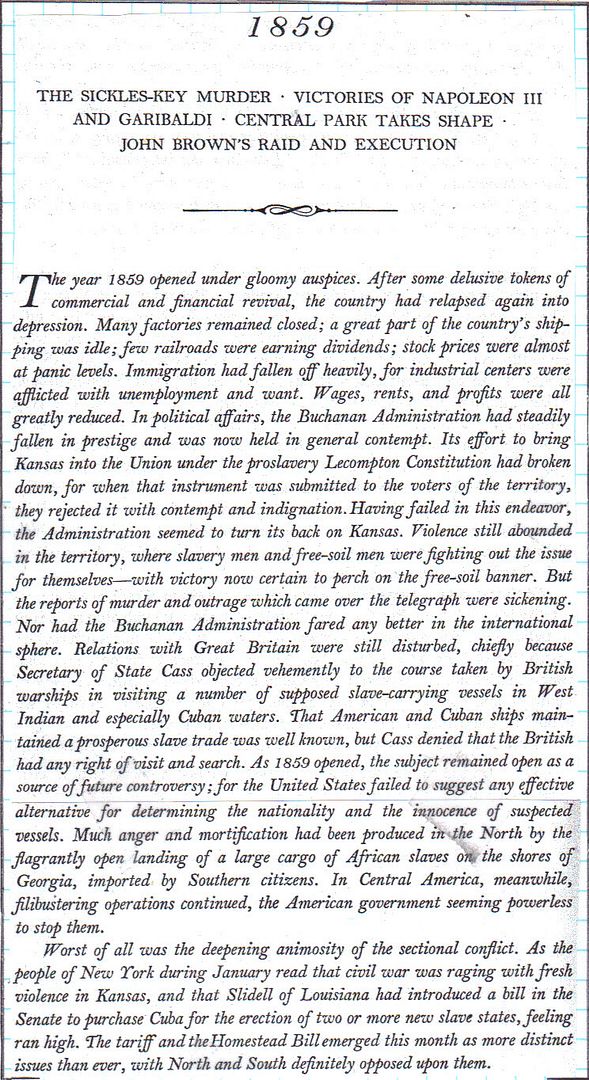
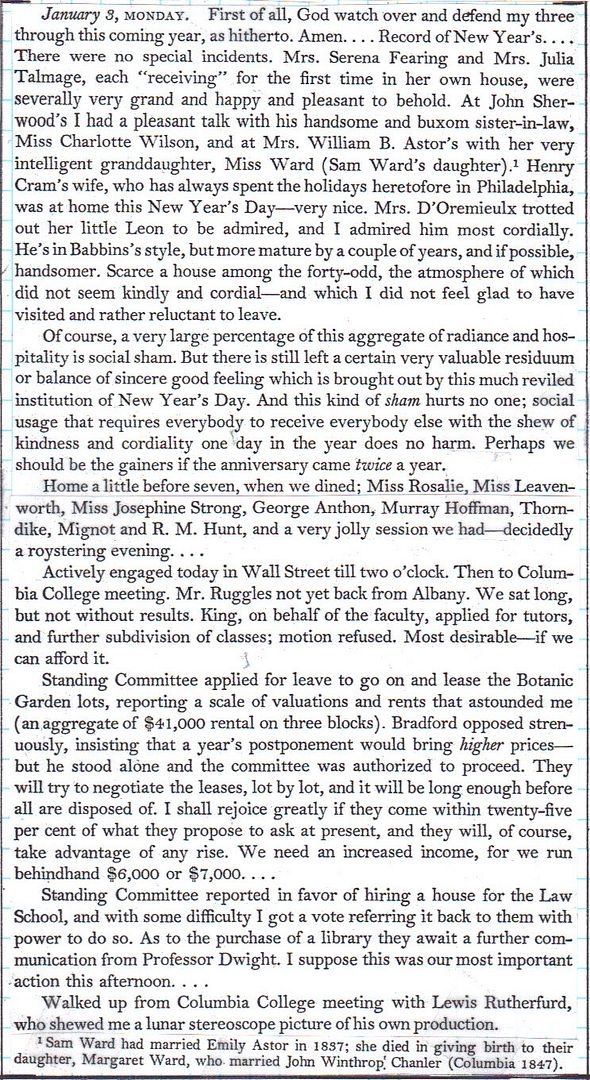
The Diary of George Templeton Strong, Edited by Allan Nevins and Milton Halsey Thomas
Good morning. Sounds like it’s going to be a busy year!
The period clothing looks very uncomfortable.
I predict escalating busyness, year after year, for some time to come.
At least the women pictured (e.g., pgs 11 & 18) are not encumbered with those insane hoop skirts.
Taking this course makes me make a comparison between 1860 and 2020. Sure, the specific issues are different, but the mood seems ominously the same.
I wonder if history will rhyme or actually, literally repeat itself.
5.56mm
January 4. Snow kept falling till noon. Now it is warm and thawing, with a cloudy sky, southwest wind, and a falling barometer. Rain tomorrow, therefore, and people who may come to Ellie’s experimental party will have to come in boats. The impending party is on a novel plan. Invitations for five P.M. People are expected anywhere from six to eight and to stay till twelve instead of coming at ten and leaving at three. The people invited are mostly of the dancing class – Young America and his beloved object. It is a sensible arrangement, but will probably result in failure.
The Diary of George Templeton Strong, Edited by Allan Nevins and Milton Halsey Thomas
A party in the evening instead of the afternoon was “experimental”?
How do the French say it?
I think it is meant the other way around. Normal is coming at 10 p.m. and staying until the wee hours. 6 p.m. til midnight is the early bird special. It may be that the dancing is experimental also. I wonder who is providing the music. George "knows people" and is a supporter of the arts. He could have some major pros fiddling in his parlor.
One "ca change" between then and now might be that the Mexicans were more likely to want a border wall than the Americans. All that property south of the Missouri Compromise line had a certain appeal to adventurous southerners.
Disclaimer: Opinions posted on Free Republic are those of the individual posters and do not necessarily represent the opinion of Free Republic or its management. All materials posted herein are protected by copyright law and the exemption for fair use of copyrighted works.